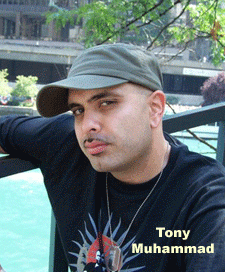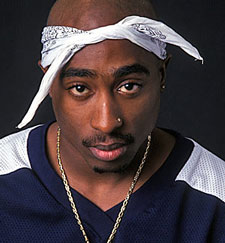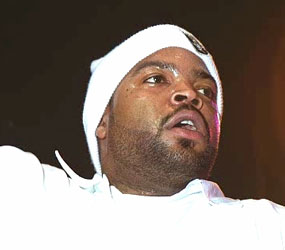
The shrunken and eviscerated public option in the Obama health care plan may now be discarded in favor of something called a health co-op. The mounting toll of concessions to drug companies and bailouts of private insurers contained in the Obama plan have transformed it, according to Rep. John Conyers, into “crap,” and threaten to make Obama a one-term president. Republicans, all the while, are fighting Obamacare every bit as resolutely as if it were Medicare For All, drumming up disinformed protesters for health care town meetings. And the embargo of single payer media coverage continues, despite its being the majority sentiment of Americans. This is the year of health care reform. Or not.
Obama On Health Care: A Comprehensive Betrayal – Where Do We Go From Here?
By BAR managing editor Bruce A. Dixon
 At some point in last year’s presidential election campaign, Barack Obama went on Bill O’Reilly’s show to concede that maybe the war in Iraq, and Bush’s murderous escalation of that war, the so-called surge, were not such bad ideas after all. Obama met with the admirals and generals and came away declaring that withdrawal from Iraq really meant withdrawal to secure bases inside Iraq. A US troop pullout would not happen until well into his second term, if then, with the accent on the “if.”
At some point in last year’s presidential election campaign, Barack Obama went on Bill O’Reilly’s show to concede that maybe the war in Iraq, and Bush’s murderous escalation of that war, the so-called surge, were not such bad ideas after all. Obama met with the admirals and generals and came away declaring that withdrawal from Iraq really meant withdrawal to secure bases inside Iraq. A US troop pullout would not happen until well into his second term, if then, with the accent on the “if.”
Casting the wishes of most Americans and the overwhelming majority of his own party under the bus, Democratic leaders and the corporate media told us all, was the wise, the realistic, the pragmatic thing to do. The election, they said, would be waged on domestic policy, on health care. Barack Obama has again and again doubled down on that set of promises, declaring that his first term should be judged on whether he manages to deliver comprehensive, affordable health care to everybody, including the nation’s fifty million uninsured.
Seven months into his administration, Barack Obama has never been the antiwar president. He was the first president in American history to keep a Secretary of Defense appointed by the other party. Obama is not the anti-warrantless wiretapping president, or the anti-torture president or the anti-NAFTA president, or the pro-public education president, either. He bought GM but refused to use it as a lever to create a new passenger rail industry or green jobs, instead crushing the auto workers and forsaking his promises to make it easier to organize unions. Obama has transferred, as Glen Ford points out, $12 trillion dollars to fraudulent Wall Street banksters, more than all previous presidents combined. Beyond the lovely wife and family, and the novelty of a black president who speaks full sentences in correct English, not much is left of the man or the cause tens of millions thought they voted for.
It looks like Barack Obama won’t be the health care president either. Obama’s health care plan is so full of concessions to drug companies, so crammed with a constantly growing list of bailouts and exceptions for insurance companies that the White House is deliberately withholding information on it from Obama’ own supporters. Organizing For America, the remnant of the Obama campaign and inheritor of its 13 million strong email and phone list, is calling supporters to canvass and turn out for health care “town meetings,” but dares not tell people exactly what they are supporting. For a while it was something called “the public option,” which would compete with and keep the insurance companies honest. Now it’s something even cloudier, called a health co-op. Among the known
No less a progressive stalwart than Detroit’s Rep. John Conyers announced his deep disappointment with Barack Obama before a crowd of progressives last month in Washington’s Busboys and Poets restaurant. Obama, he opined, could be a one-term president if he doesn’t manage to deliver on health care.
Conyers is the sponsor of HR 676, the Enhanced Medicare For All Act, which proposes the expansion of the highly successful Medicare program, along with enhancements such as dental coverage to all Americans. President Obama has admitted many times in recent months that Medicare For All, also called single payer, is the only way, and the least expensive way to cover the uninsured while at the same time bringing costs down. But with few exceptions, leading Democrats, themselves in the pay of health insurance companies and Big Pharma, have declared that Medicare For All is “politically infeasible.”
With corporate media shutting off all points of view to the left of the president, and Republicans fighting even the hopelessly compromised Democratic plans as if they were single payer, the public is presented with an utterly distorted picture of the health care debate — pro-Obama legislators being shouted down by right wing white seniors on Medicare worried about government coming between them and their doctors, and liberal Democrats pleading for civility. It’s worth remembering that the same people calling for amiable and civil discourse on health care have ruthlessly censored any mention of single payer from the broadcast airwaves. Even the White House has disinvited the president’s own family doctor for his single payer sentiments, and removed the testimony of single payer advocates from White House transcripts and video.
For the moment, argues Dave Lindorff, single payer advocates have more in common with some of the deluded Republican protesters at public health town meetings than they have with Democratic legislators at the front of the room. They know they’re being lied to and they know that the proceedings are sham and theatre and they are acting accordingly. Maybe we ought to be doing the same. We ought to insist on a floor vote on HR 676, and demand that our representatives support it. We also have to demand that states be free to pursue their own single payer experiments.
It’s time to stop listening to Democrats who say Medicare For All is “politically infeasible” despite its being the democratic will of most of the American people. On their lips, political feasibility is just another name for whether it can pass the legislature this session. Political feasibility is not even in the language of movements for social change. The activists of the 1950s and 60s Freedom Movement knew very well that their demands were not politically feasible. Should they have shut up until Congress and the Supreme Court caught up with them?
Barack Obama may well make himself a one-term president by adding health care to the growing list of his betrayals, and he might come close to handing the Congress back to Republicans as soon as next year. Those are the wages of comprehensive betrayal. If that’s what they want to do, we can’t stop them. We’ve got our own work to do, going forward, and regardless of what they Democratic leaders and corporate media imagine is politically feasible.
 Not many people know that reknowned producer J-Dilla who died two years ago from Lupus was uninsured. Thats horrific when you consider he produced multi-platinum selling songs for everyone ranging from Busta Rhymes on down to Janet Jackson to De La Soul and Common. One would think a man of his fame would be insured like the record label executives who own part of and oversaw the placement of Dilla’s music.
Not many people know that reknowned producer J-Dilla who died two years ago from Lupus was uninsured. Thats horrific when you consider he produced multi-platinum selling songs for everyone ranging from Busta Rhymes on down to Janet Jackson to De La Soul and Common. One would think a man of his fame would be insured like the record label executives who own part of and oversaw the placement of Dilla’s music.
 Today in Inglewood, California there are huge crowds showing up for a free healthcare at the Forum. The lines and crowds are so large that people are being told by all the major news stations in LA, not to come down. People have been given tickets and appointments to be seen by this large army of volunteer doctors stretching until next week. This free health clinic is spending time with people, many who haven’t had a check up in over 10 years because healthcare except for extreme emergencies is out of reach.
Today in Inglewood, California there are huge crowds showing up for a free healthcare at the Forum. The lines and crowds are so large that people are being told by all the major news stations in LA, not to come down. People have been given tickets and appointments to be seen by this large army of volunteer doctors stretching until next week. This free health clinic is spending time with people, many who haven’t had a check up in over 10 years because healthcare except for extreme emergencies is out of reach.





 This AP article posted below which details corruption along the borders is an interesting one in the sense that it suggests shock and surprise that this is taking place. As much as people like to think highly of those who are charged with protecting and serving the citizens of this country, the sad and sobering truth is that in many parts of the country law enforcement officials are seduced into accepting bribes and doing the wrong thing. Should we NOT be surprised about this especially here in Texas? Wasn’t it just a mere two or three months ago a band of rogue cops was busted for ‘robbing’ people in Tehena, Texas?
This AP article posted below which details corruption along the borders is an interesting one in the sense that it suggests shock and surprise that this is taking place. As much as people like to think highly of those who are charged with protecting and serving the citizens of this country, the sad and sobering truth is that in many parts of the country law enforcement officials are seduced into accepting bribes and doing the wrong thing. Should we NOT be surprised about this especially here in Texas? Wasn’t it just a mere two or three months ago a band of rogue cops was busted for ‘robbing’ people in Tehena, Texas?
 The past few months have indeed been strange (but yet not surprisingly strange) for a few of us in and among the conscientious Hip Hop community in relation to encounters with police. On the afternoon of Friday, May 8th, I, myself, was arrested for the very first time in my life. I wasn’t taken to jail, but I was fingerprinted on the spot and fined, charged with soliciting in the city of Miami Gardens, Florida. What was I actually doing? I was passing out invitations for a special Mother’s Day program at my mosque. I was passing out the invitations in traffic as many other FOI (Fruit of Islam) were doing throughout Miami-Dade county, nationwide and internationally. I was stopped by a police officer and asked if I was selling anything. I said “No.” He inquired about the Final Call newspapers that were in a bag I was carrying. He asked me if they were for sale. I told him that they were not for sale, but that we accept donations for them if offered. It was at this point that the officer asked for my ID and the “arrest” took place.
The past few months have indeed been strange (but yet not surprisingly strange) for a few of us in and among the conscientious Hip Hop community in relation to encounters with police. On the afternoon of Friday, May 8th, I, myself, was arrested for the very first time in my life. I wasn’t taken to jail, but I was fingerprinted on the spot and fined, charged with soliciting in the city of Miami Gardens, Florida. What was I actually doing? I was passing out invitations for a special Mother’s Day program at my mosque. I was passing out the invitations in traffic as many other FOI (Fruit of Islam) were doing throughout Miami-Dade county, nationwide and internationally. I was stopped by a police officer and asked if I was selling anything. I said “No.” He inquired about the Final Call newspapers that were in a bag I was carrying. He asked me if they were for sale. I told him that they were not for sale, but that we accept donations for them if offered. It was at this point that the officer asked for my ID and the “arrest” took place. 




 AllHipHop.com: No? [stagnated silence] How can you love Hip-Hop and feel like that?
AllHipHop.com: No? [stagnated silence] How can you love Hip-Hop and feel like that?